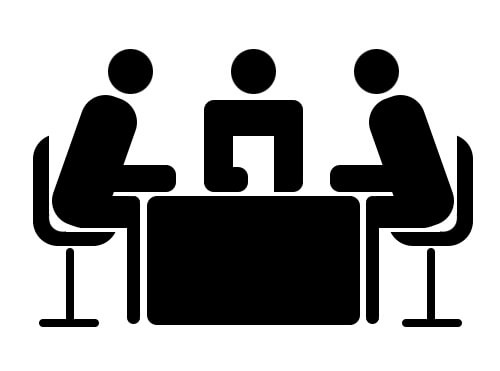Currently I am not accepting new clients, whereas I am spending time researching and writing psychology and self-help books.
Thank you for your interest.
Thank you for your interest.


Dr. Scott Poland
Psychologist, Psychotherapist, Mediator
Psychotherapy, Counseling, Marriage Counseling,
Cognitive Behavioral Therapy, Mediation, Divorce Mediation
Cognitive Behavioral Therapy, Mediation, Divorce Mediation
The Mediation Process
What is Mediation?
Mediation is an innovative process used to resolve conflicts and disputes satisfactorily for both parties. It allows parties to maintain their dignity, and create a respectful atmosphere.Mediation is about coming up with creative solutions by understanding your own and the other party's interests. For some, mediation not only solves the nitty-gritty problem at hand, but also the underlying problems. At times parties not only resolve their dispute, but inadvertently resolve financial, social, and even emotional issues. With that said, mediation is not a "flaky" process. Rather mediation is an innovative model that is solution-focused and can be highly productive and time efficient for creating mutually satisfactory agreements between disputing parties.
Discovering Interests and Not Just Positions:
Mediation is about discovering your own and the other party's interests, rather than each party only arguing from their own positions. Discovering the other party's interests can help each party to negotiate more mutually satisfying solutions.For example, in Divorce Mediation parties often do not just want money from the other party. They also may want a parenting plan that works with their schedule, an apology, or an opportunity to be heard. These details (called "interests" in mediation) are usually left out of the litigation process (when couples decide to fight each other in court through their attorneys). However, "interests" can be very important to one or both parties; and essential to discuss in order to find mutually satisfying solutions. Thus when parties litigate rather than mediate, they often feel their needs were not addressed by the court.
The mediation process can potentially resolve deep-seated individual and relationship problems. Oftentimes, the mediation process helps create mutual understanding between parties, which at times can restore a relationship that needs to continue (such as with parents who will be co-parenting, manager-employee, landlord-tenant etc.) Potentially, mediation can lead to both positive emotional and behavioral changes that can help lead to aproductive working relationship with the other party in the future.
The Mediation Process
Working With and Without AttorneysSome people attend mediation without an attorney, (called "pro-se") and others come to mediation with an attorney present ("each party is represented"). Each party's attorney is always welcome to attend the mediation. There are times however when attorneys decide not to attend. Either is fine, and we can discuss the options.
I regularly collaborate with a few attorneys who can assist with any legal issues if you are not represented by an attorney.
What can one expect to take place during the mediation?
At the beginning of the mediation, the mediator will explain the mediation process and their role. Mediators facilitate the mediation process in order to assist the parties in making agreements that resolve their disputes. Mediators do not take sides nor do they make decisions for the parties. Thus mediators remain impartial and neutral. Mediation is a confidential process that often allows parties to open up about their real interests and concerns.
In mediation, each party will have a chance to share their perspective on each issue, and tell their side of the story. A list of topics will be generated that the parties agree are important to discuss. Each party will have a chance to discuss their own interests. Options will be brainstormed. After that, the options and proposed solutions will be evaluated. Afterwards, parties often come to a variety of resolutions. If agreements are made, those are typically written up as an agreement formally called a "Memorandum of Agreement" or "Memorandum of Understanding."
In divorce mediation, other forms can be completed by the parties and submitted to the court for processing their "Dissolution of Marriage." For convenience, these forms with instructions will be provided during the divorce mediation or parties can obtain the legal forms from the court website.
In mediation there might be choices that parties want to make but should not; and there might be choices which parties do not want to face but should. As the mediator, I can help clarify these issues in order to assist parties in making positive and productive agreements.
Individual Meetings with Me During the Mediation
When necessary, parties can meet with the mediator alone (which is formally called a "caucus") or take a break from the meditation to discuss issues individually with their attorney (if they are represented). Caucuses can often speed up the mediation process, especially if parties have reached an impasse ("a stand-still"). Caucuses can be utilized by each party. If one party has a private meeting (i.e. caucus) with the mediator, the other party will also be given the option to do so.
